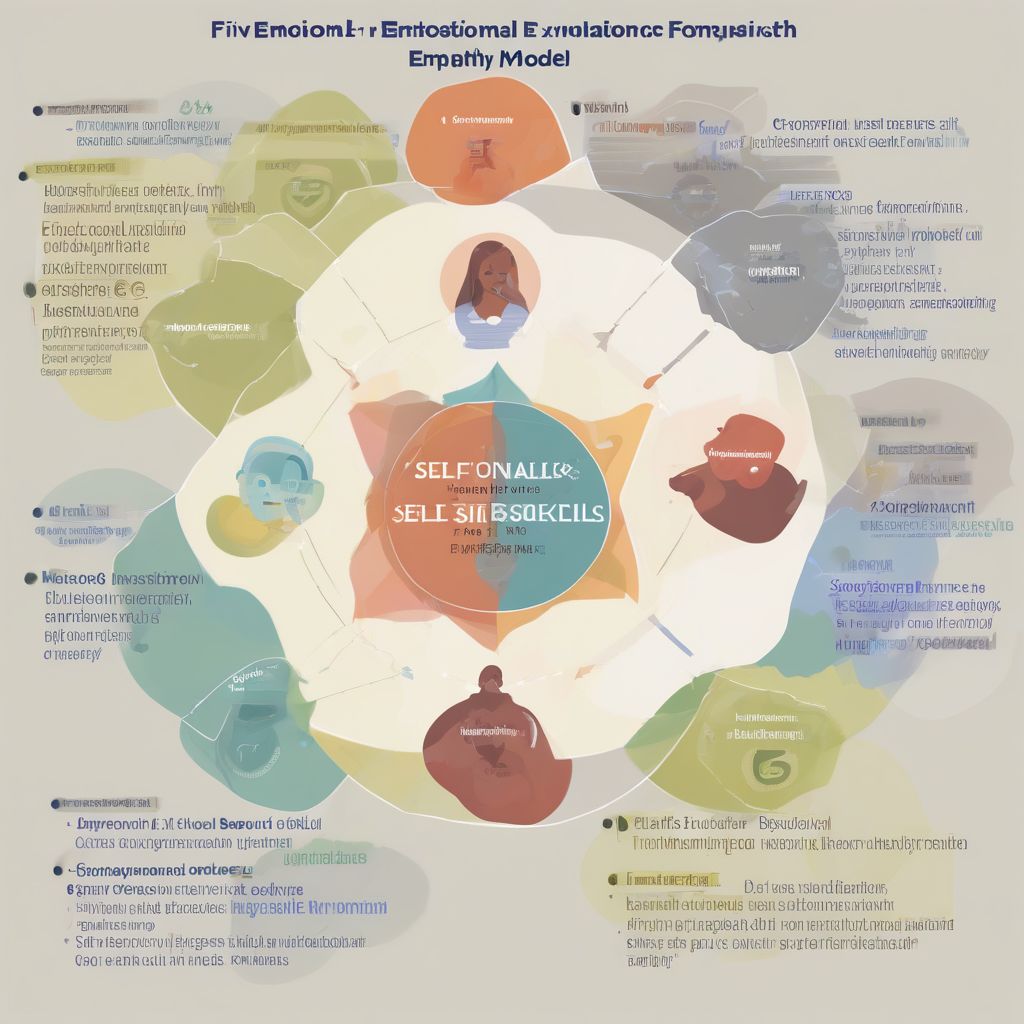Have you ever wondered why some people seem to navigate the complexities of social situations with grace and empathy, while others struggle? The answer might lie in the realm of emotional intelligence. Often hailed as the key to building and maintaining healthy relationships, emotional intelligence plays a pivotal role in how we understand and manage our own emotions and those of others. This intricate ability empowers us to communicate effectively, build strong connections, navigate conflicts constructively, and foster a sense of harmony in our social interactions.
Understanding Emotional Intelligence
Emotional intelligence, often referred to as EQ, goes beyond simply recognizing emotions. It encompasses a range of skills that enable us to:
- Self-Awareness: Recognizing and understanding our own emotions and their impact on our thoughts and behaviors.
- Self-Regulation: Managing our emotions effectively, expressing them appropriately, and avoiding impulsive reactions.
- Motivation: Utilizing our emotions to drive us towards our goals, displaying resilience in the face of challenges, and maintaining a positive outlook.
- Empathy: Recognizing and understanding the emotions of others, demonstrating compassion and sensitivity towards their perspectives.
- Social Skills: Building and maintaining healthy relationships, communicating effectively, inspiring and influencing others, and working collaboratively towards shared goals.
 Emotional Intelligence Model
Emotional Intelligence Model
The Profound Impact on Social Relationships
Emotional intelligence serves as a cornerstone for healthy and fulfilling social relationships. Let’s explore how:
1. Enhanced Communication
Emotionally intelligent individuals excel at communication. They are adept at expressing their thoughts and feelings clearly, while also being attentive and empathetic listeners. This ability to engage in open and honest communication fosters trust, understanding, and deeper connections.
2. Effective Conflict Resolution
Conflicts are an inevitable part of any relationship. However, individuals with high emotional intelligence possess the ability to navigate disagreements with composure and empathy. Instead of resorting to defensiveness or blame, they approach conflicts as opportunities for growth and understanding.
3. Strong Bonds of Trust
Trust is the foundation of any strong relationship. Emotionally intelligent individuals, through their empathy, reliability, and authenticity, inspire trust in others. They are perceived as dependable and supportive, creating a safe space for vulnerability and emotional connection.
4. Building Lasting Relationships
The ability to understand and respond to the emotional needs of others is paramount in building lasting relationships. Emotionally intelligent individuals are skilled at nurturing connections, offering support, and celebrating the successes of those around them. They prioritize empathy and understanding, fostering a sense of belonging and mutual respect.
The Ripple Effect of Low Emotional Intelligence
While high emotional intelligence can enhance social relationships, low emotional intelligence can have a detrimental impact:
- Miscommunication and Misunderstandings: Difficulty interpreting and responding to emotional cues can lead to miscommunication, creating rifts in relationships.
- Increased Conflict: A lack of emotional regulation can contribute to impulsive reactions, escalating conflicts and damaging relationships.
- Erosion of Trust: Individuals with low emotional intelligence may struggle to build and maintain trust due to difficulties in understanding and responding to the emotional needs of others.
- Social Isolation: The inability to navigate social situations effectively and form meaningful connections can result in feelings of loneliness and social isolation.
Nurturing Emotional Intelligence for Stronger Connections
Just as we cultivate our physical and mental well-being, emotional intelligence is a skill that can be developed and strengthened over time. Here are some strategies:
- Practice Self-Reflection: Engage in introspection to become more aware of your own emotions, triggers, and behavioral patterns.
- Develop Empathy: Make a conscious effort to understand and appreciate the perspectives and emotions of others. Practice active listening, putting yourself in their shoes, and responding with compassion.
- Improve Communication Skills: Focus on clear and assertive communication, expressing your needs and feelings while also being receptive to the perspectives of others.
- Learn Conflict Resolution Techniques: Acquire healthy conflict resolution skills, such as active listening, compromise, and finding mutually beneficial solutions.
- Seek Professional Guidance: Consider working with a therapist or counselor to explore your emotional patterns and develop personalized strategies for enhancing your emotional intelligence.
The Path to Fulfilling Relationships
Emotional intelligence is not a guarantee for perfect relationships, but it equips us with the essential tools to navigate the complexities of human connection with greater understanding, compassion, and effectiveness. By investing in our own emotional growth, we pave the way for more fulfilling relationships, enriching our lives and the lives of those around us.
Cultivating Emotional Intelligence in Children
Emotional intelligence isn’t just for adults! Teaching children about emotions and how to manage them effectively is crucial for their social and emotional development. Check out these resources for helpful tips and strategies:
- The Role of Emotional Intelligence in Child Development
- The Best Resources for Teaching Emotional Intelligence to Children
The Future of Mindful Communication
As we continue to explore the power of emotional intelligence, it’s exciting to envision a future where mindful communication becomes the norm. Imagine a world where empathy and understanding guide our interactions, fostering stronger connections and a more compassionate society.
For insights into the evolving landscape of mindful communication and its impact on parenting, be sure to explore:
[amazon bestseller=”emotional intelligence”]
